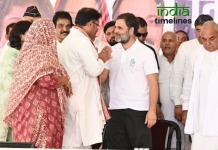
The political landscape of Jammu and Kashmir is once again under the spotlight as the Bharatiya Janata Party (BJP) unveils a revised list of 15 candidates for the upcoming assembly elections. This move comes amid a series of strategic decisions and recalculations that underscore the importance of these elections in shaping the future of the region.
Significance of the Revised Candidate List
The revision of the candidate list by the BJP is not just a routine update but a reflection of the party’s evolving strategy to consolidate its position in Jammu and Kashmir. With the political dynamics of the region being highly nuanced and sensitive, the selection of candidates plays a crucial role in determining the party’s success. The BJP’s decision to alter its candidate list demonstrates its responsiveness to the ground realities and voter sentiments, aiming to maximize its electoral gains.
Strategic Importance of Jammu and Kashmir in BJP’s Vision
Jammu and Kashmir hold a unique place in the BJP’s national vision. The abrogation of Article 370 in 2019 marked a significant shift in the region’s political landscape, and the BJP has since been focused on integrating the region more closely with the rest of India. The assembly elections are a critical step in this process, as they will determine the local governance framework and the extent of BJP’s influence in the region. The revised list of candidates reflects the party’s commitment to securing a strong mandate in the region, which is essential for implementing its developmental and governance agenda.
Detailed Overview of the Revised Candidate List
The BJP’s revised list includes a mix of experienced politicians and fresh faces, indicating a balanced approach that combines experience with new energy. Each candidate has been carefully selected based on their local influence, understanding of regional issues, and alignment with the party’s broader objectives.
Veteran Politicians: The inclusion of seasoned politicians in the list underscores the BJP’s reliance on experience and political acumen. These candidates are expected to leverage their deep-rooted connections and understanding of local issues to secure votes.
New Faces: The introduction of new candidates reflects the BJP’s strategy to inject fresh perspectives and appeal to younger voters. These candidates are likely to resonate with the aspirations of the youth and first-time voters, who form a significant portion of the electorate.
Regional Representation: The revised list also ensures adequate representation from various regions within Jammu and Kashmir. This is crucial for addressing the diverse concerns of the electorate and ensuring that all areas feel included in the political process.
Key Challenges and Opportunities for BJP in the Elections
The upcoming assembly elections present both challenges and opportunities for the BJP. On one hand, the party faces the challenge of overcoming the skepticism and resistance from certain sections of the population who may be wary of the changes brought about by the abrogation of Article 370. On the other hand, the elections offer the BJP an opportunity to solidify its presence in the region and prove its commitment to the development and integration of Jammu and Kashmir.
Security Concerns: Security remains a significant concern in the region, and the BJP’s ability to ensure a peaceful electoral process will be closely watched. The party’s stance on national security and its efforts to maintain peace and stability will be key factors in garnering voter support.
Developmental Agenda: The BJP’s focus on development, particularly in areas like infrastructure, education, and healthcare, will be a major selling point in the elections. The party’s candidates are expected to highlight the developmental projects initiated by the central government and the positive impact these have had on the lives of the people in Jammu and Kashmir.
Voter Sentiment: Understanding and addressing voter sentiment is crucial for the BJP’s success. The party’s candidates will need to engage with the electorate at a grassroots level, listening to their concerns and effectively communicating the BJP’s vision for the region.
Implications of the Election Outcome
The outcome of the Jammu and Kashmir assembly elections will have far-reaching implications, not just for the region but for the entire country. A strong performance by the BJP would reinforce the party’s narrative of national integration and development. It would also provide the party with the necessary mandate to further its governance agenda in the region.
Conversely, a less favorable outcome would require the BJP to reassess its strategies and possibly recalibrate its approach to the region. Regardless of the outcome, these elections are set to be a defining moment in the political history of Jammu and Kashmir.
Conclusion
The Bharatiya Janata Party gears up for the Jammu and Kashmir assembly elections with a revised list of candidates, the stakes are higher than ever. The party’s strategic decisions, candidate selection, and campaign efforts will play a pivotal role in determining its success in the region. The BJP’s focus on experience, fresh perspectives, and regional representation reflects a comprehensive approach aimed at securing a strong mandate. The coming weeks will reveal how these efforts translate into electoral success and what the future holds for Jammu and Kashmir under the BJP’s vision.




































